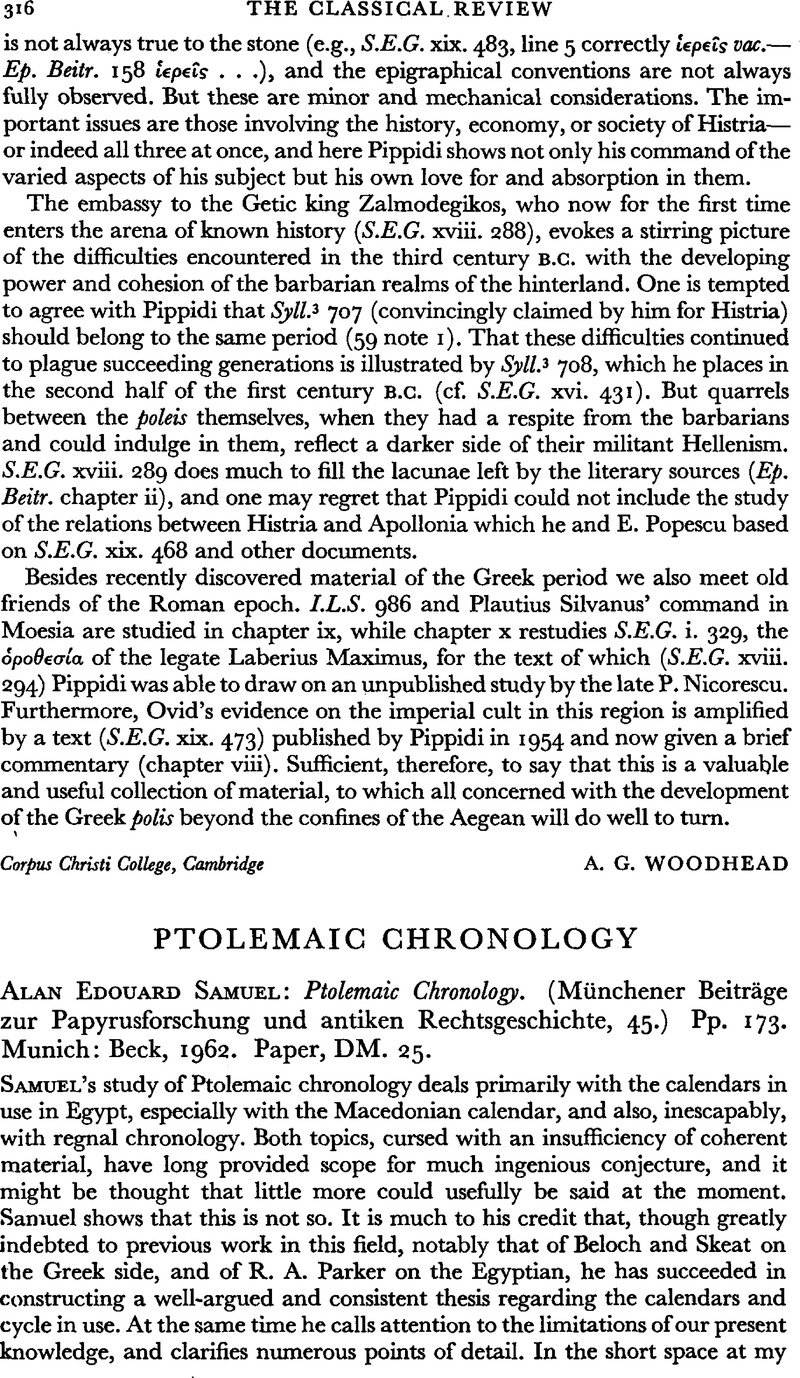No CrossRef data available.
Article contents
Ptolemaic Chronology - Alan Edouard Samuel: Ptolemaic Chronology. (Münchener Beiträge zur Papyrusforschung und antiken Rechtsgeschichte, 45.) Pp. 173. Munich: Beck, 1962. Paper, DM. 25.
Published online by Cambridge University Press: 27 February 2009
Abstract

- Type
- Reviews
- Information
- Copyright
- Copyright © The Classical Association 1964
References
1 He maintains, as a preliminary, that the Macedonians recorded the days of the month not by decads but in a sequence of thirty. This is certainly the normal practice, demon-strated by the dates of papyri, and the only exception given by S. is the papyrus of 252/1 published by Bell, Archiv, vii. 19, which is dated μην⋯ς Δαισ⋯ου τρ⋯τηι φθ⋯νοντος. Bell claimed this system of counting the month, unattested otherwise in papyri, as an indication that the document is Alexandrian. A point of some interest arises. Neither Bell nor Samuel refers to the contemporary in-scription, Breccia, Iscriz, 164, of which only the prescript survives. This inscription is now generally accepted as Alexandrian, and it too has the decadic dating: line 4, [τ⋯ι π⋯μπ]τηι φθ⋯νοντος. These two dates confirm one another, and surely establish an Alexandrian origin for both. Samuel is thus wrong to assert that the existence of the decadic system of dating in the events Alexander's life recorded in the Ephemerides shows that it is non-Macedonian. We have apparently to reckon with an alternative system, possibly operative only in Alexandria, alongside the other system.




